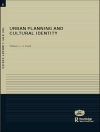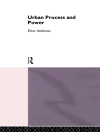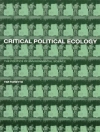Simply stated, geography studies the locations of things and the explanations that underlie spatial distributions. Profound forces at work throughout the world have made geographical knowledge increasingly important for understanding numerous human dilemmas and our capacities to address them.
With more than 1, 200 entries, the Encyclopedia of Geography reflects how the growth of geography has propelled a demand for intermediaries between the abstract language of academia and the ordinary language of everyday life. The six volumes of this encyclopedia encapsulate a diverse array of topics to offer a comprehensive and useful summary of the state of the discipline in the early 21st century.
Key Features
- Gives a concise historical sketch of geography′s long, rich, and fascinating history, including human geography, physical geography, and GIS
- Provides succinct summaries of trends such as globalization, environmental destruction, new geospatial technologies, and cyberspace
- Decomposes geography into the six broad subject areas: physical geography; human geography; nature and society; methods, models, and GIS; history of geography; and geographer biographies, geographic organizations, and important social movements
- Provides hundreds of color illustrations and images that lend depth and realism to the text
- Includes a special map section
Key Themes
- Physical Geography
- Human Geography
- Nature and Society
- Methods, Models, and GIS
- People, Organizations, and Movements
- History of Geography
This encyclopedia strategically reflects the enormous diversity of the discipline, the multiple meanings of space itself, and the diverse views of geographers. It brings together the diversity of geographical knowledge, making it an invaluable resource for any academic library.
About the author
I am a human geographer with exceptionally wide-ranging interests. Over the years, in different professional capacities, I have had the opportunity to study a diverse plethora of topics in economic, political, and social geography. Running throughout this panoply is my interest in political economy as it pertains to the construction of space and place. I have consciously sought to position myself within the discipline at the intersections of traditional economic geography and contemporary social theory. I have found keeping a leg in each camp to be rewarding and fruitful. In this vein, my work straddles traditional quantitative, empirical approaches on the one hand and contemporary, qualitative, theoretical perspectives on the other.












